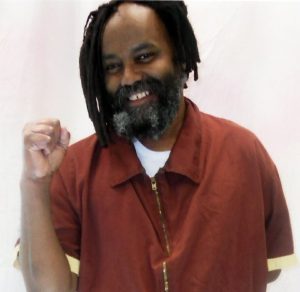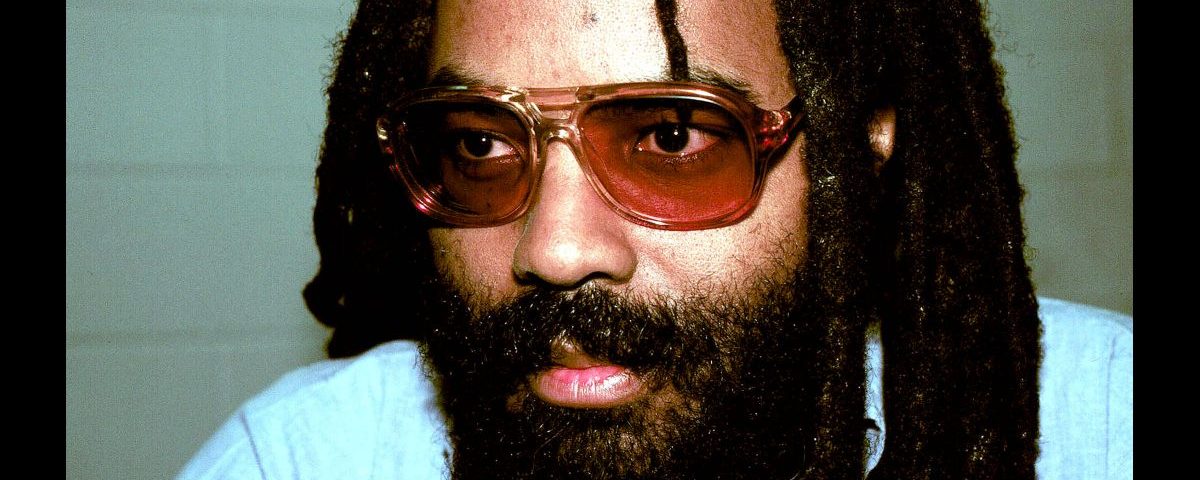By John Leslie, originally published on Socialist Action
New mobilizations are planned in the case of political prisoner Mumia Abu-Jamal. The events will take place at a critical juncture in Mumia’s case, which opened up with the Williams v. Pennsylvania decision, presenting an opportunity, after so much struggle, to finally win Mumia’s freedom.
This is particularly urgent because Mumia’s health continues to be in danger. The Pennsylvania Department of Corrections has failed to adequately treat his liver damage, and a skin condition that causes severe itching is persisting.
Mumia activists are asking that supporters around the world—in Latin America, Europe and elsewhere—organize actions the weekend before Mumia’s March 27 court date and publicize the case in their press. Also, organizations across the United States are urged to build local actions and consider mobilizing to come to Philadelphia on March 27.
Supporters of Mumia’s struggle for freedom have long known that his original trial was a sham, based on the collusion of prosecutors, cops, and a corrupt judge. Time and again, evidence that Mumia is innocent has come to light, but the criminal injustice system has failed to do the right thing. Instead, the state’s determination to silence the voice of a fighter for justice has increased.
Freemumia.com reports: “On April 28 [2017], Philadelphia Common Pleas Judge Leon Tucker issued an order to the Philadelphia District Attorney’s office to release all records and memos regarding former Philly DA Ron Castille’s involvement in Mumia Abu-Jamal’s case. On May 30, the DA’s office failed to follow the judge’s order, only releasing documents already available in public records.
“The order followed a recent landmark Supreme Court decision, Williams v. Pennsylvania, which ruled that judges must remove themselves from any case that they had a hand in prosecuting. Ronald Castille was Assistant Philadelphia DA at the time of Abu-Jamal’s 1982 trial and Philadelphia District Attorney when his office opposed Mumia Abu-Jamal’s direct appeals in 1988. Castille twice refused to recuse himself when Abu-Jamal’s appeals reached the state’s highest court” (see Freemumia.com).
A statement released in December 2017—signed by activists, parliamentarians, labor leaders, and human rights advocates—called for Mumia’s freedom based on a new legal challenge in the Pennsylvania courts on the grounds that former Pennsylvania Supreme Court Justice Ronald Castille violated the Williams ruling when he denied Abu-Jamal’s appeals from 1998-2014.
On Jan. 17, 2018, a court hearing on the question of Castille’s role in Mumia’s case was delayed. There are two court hearings coming up:
- Feb. 26, 8 a.m. This will be a “status report” for the judge. Organizers want to make sure there is a strong local presence on the 26th.
- Tuesday, March 27, at 8 a.m. This will be a major mobilization aimed at pressuring the DA’s office and the criminal justice system. Mumia’s health situation is dire. It’s clear that the prison system, which was thwarted in its attempt to execute Mumia legally, is trying to execute him through medical neglect.
Organizers want to put pressure on “progressive” Democrat Larry Krasner, who got elected as District Attorney on a platform of criminal justice reform, to release documents related to Mumia’s case to the public. Krasner has already backed off on his previous opposition to the death penalty and has also adjusted his position on juvenile lifers.
Pennsylvania has more people sentenced as juveniles to life without parole than any other state. In June 2017, nearly 2500 juveniles across the nation had been sentenced to life without parole under tough-on-crime laws and must be resentenced after the U.S. Supreme Court ruled these sentences unconstitutional. Krasner’s office has apparently pushed off the possibility of release for some of these prisoners for another five years. He has also sought to mend relations with the Fraternal Order of Police after they condemned him and his supporters as anti-police.
Who is Mumia Abu-Jamal?
 Mumia Abu-Jamal joined the Black Panther Party (BPP) at age 14, when he helped form the Philadelphia chapter of the party. The founding of the Philadelphia chapter was met with police violence under command of the reactionary police commissioner (and later mayor) Frank Rizzo. Mumia had been beaten by Philly cops while protesting against a campaign appearance of the racist George Wallace in 1968.
Mumia Abu-Jamal joined the Black Panther Party (BPP) at age 14, when he helped form the Philadelphia chapter of the party. The founding of the Philadelphia chapter was met with police violence under command of the reactionary police commissioner (and later mayor) Frank Rizzo. Mumia had been beaten by Philly cops while protesting against a campaign appearance of the racist George Wallace in 1968.
During his days in the BPP, Mumia traveled to New York and Oakland to help efforts to build the party. After leaving the party in 1970, Mumia pursued a career as a journalist, becoming an uncompromising critic of the actions of the Philadelphia police and Frank Rizzo, earning the reputation as the “voice of the voiceless.” Mumia’s reporting on the 1978 attack on MOVE by Philadelphia cops, which led to the imprisonment of nine members of the organization, garnered a threat from Mayor Rizzo.
“At his press conference following the cop assault, Frank Rizzo, then the mayor, looked directly at Mumia (Abu-Jamal) and declared that a ‘new breed of journalism’ was to blame for Ramp’s death [police officer John J. Ramp was shot, quite likely by fellow officers, during a police attack on MOVE members in 1978] and that someday those like Mumia were ‘going to have to be held responsible and accountable’” (“The Fight to Free Mumia Abu-Jamal,” by Rachel Wolkenstein).
Mumia was convicted of the 1981 murder of a police officer, Daniel Faulkner, in a frame-up trial with demonstrated collusion between prosecutors and the judge, who was a member of the Fraternal Order of Police. At the time of the trial, the judge, Albert Sabo, was overheard, by a white court stenographer, saying that he was going to “help them [prosecutors] fry that n****r.”
Convicted and sentenced to die, Mumia continued to write and speak out in defense of the oppressed and victims of this society. The cop unions and politicians have tried for decades to silence his voice because he represents resistance to a system that holds the lives of Black and other oppressed peoples in contempt.
Mass action and grassroots organizing were crucial elements of the effort to keep Mumia alive over the years. In conjunction with attorneys’ efforts in the appeals process, human rights advocates and activists mobilized in the streets in solidarity with Mumia’s fight for freedom. It is not an exaggeration to say that mass action kept Mumia alive and will eventually free him from prison.
The death sentence against Mumia was vacated in 2001 by a federal judge who ruled that there were irregularities in the way the jury was instructed in the original case. The judge, however, failed to order a new trial, which supporters feel would exonerate him. The state of Pennsylvania continued to fight to reinstate the death sentence until 2011.
Health update
On Jan. 3, 2017, U.S. District Court Judge Robert Mariani granted the motion filed by Mumia Abu-Jamal for a preliminary injunction ordering the Pennsylvania Department of Corrections (DOC) to begin preparations to treat Mumia’s Hepatitis C, a life-threatening liver disease. The judge’s order overturned a lower court decision on the same matter. The denial of such treatment, wrote Mariani, represented a violation of Mumia’s rights under the U.S. Constitution’s Eighth Amendment prohibiting “cruel and unusual punishment.” Mumia began receiving an anti-viral drug in April 2017, and the treatment seemed to have overcome the Hepatitis.
Nevertheless, Mumia’s health situation remains serious and has even deteriorated in recent months. The Pennsylvania Department of Corrections has refused to offer adequate treatment for a skin condition that has cracked his skin and caused it to bleed, while causing severe and debilitating itching. There are strong concerns about lasting liver damage caused by the Hepatitis C that the DOC allowed to go untreated for too long.
Socialist Action urges political activists, the labor movement, and all supporters of democratic rights in the U.S. and internationally to build demonstrations in their local areas. We also encourage all who can come to either the February or March court dates to pack the court for Mumia’s freedom. This is a critical juncture in Mumia’s case. We cannot rely on the capitalist courts and politicians to grant him justice. Winning Mumia’s freedom depends on the mass actions of all of those who oppose oppression.
